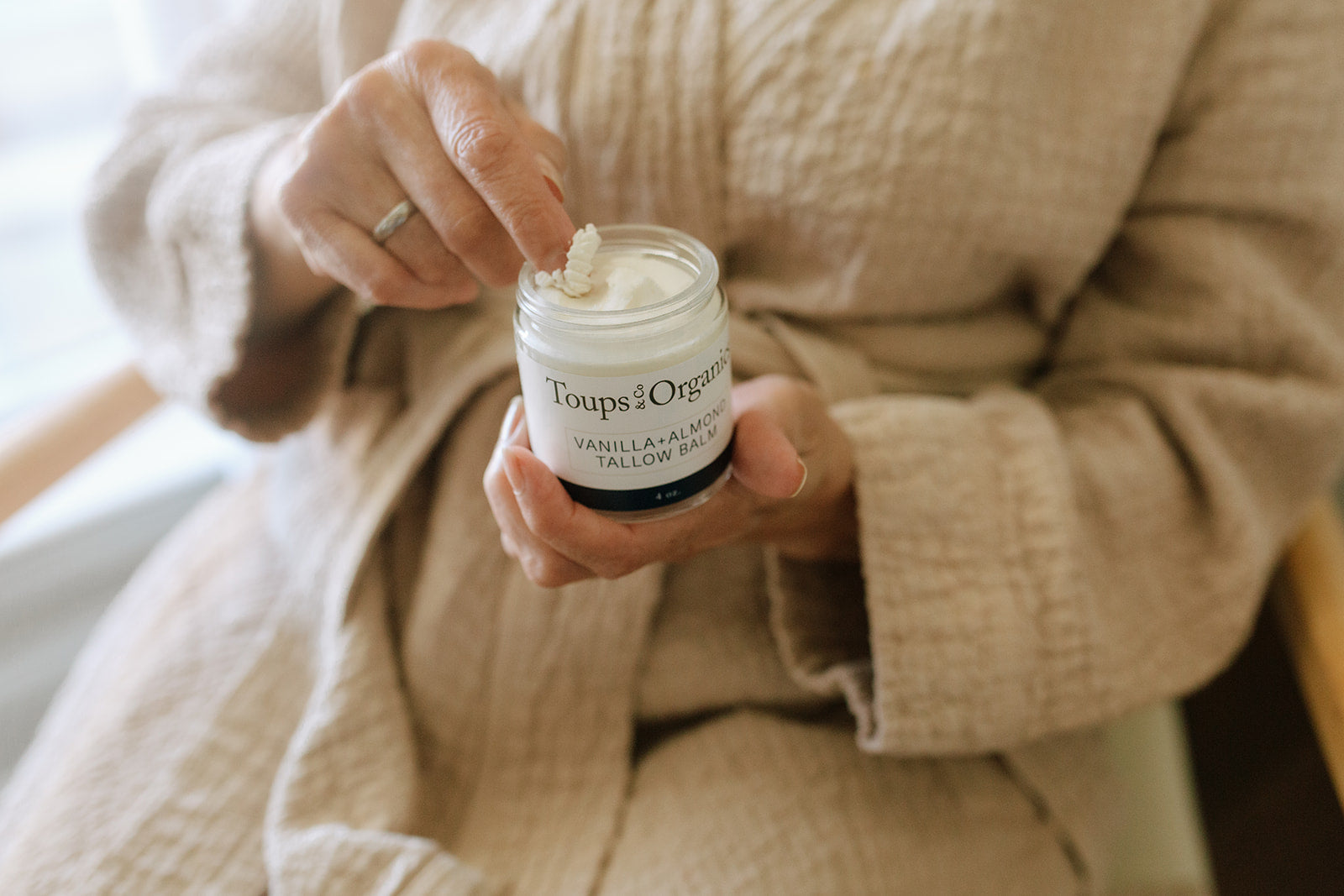Healing eczema isn’t as simple as using the right moisturizer. Usually, eczema breakouts point to a bigger issue with the immune system, gut, or liver. Natural remedies for eczema focus on healing the whole person, not just the skin.
Eczema is a chronic skin condition that’s characterized by an itchy, dry, and disrupted skin barrier. If you have it, you know just how uncomfortable it can be and how difficult it is to find the right solution. Maybe you’ve even tried prescription medications and topical drugstore formulas that promise relief but don’t work long term.
The good news is, there’s hope for eczema. In most cases, eczema isn’t just a skin rash. It’s your body’s way of alerting you to a deeper issue. Using a natural approach is the best way to reverse eczema, since it targets both the skin and the underlying root cause.
What Is Eczema and Why Does It Happen?
Eczema is a chronic skin rash that causes itchy, inflamed, and severely dry skin. Skin barrier damage usually occurs with eczema, and the skin struggles to hold moisture. Eczema tends to come with environmental allergies but can also come from high stress and other outside factors, like gut imbalance.
10 Holistic Remedies to Heal Eczema Naturally
After slathering on petroleum jelly and topical steroids, you’ve discovered that holistic remedies for eczema always work better. They’re risk-free, non-invasive, and they effectively restore the skin barrier.
-
Eat the GAPS diet
There’s a strong connection between the skin and gut. Microbiome imbalance and toxic overload can drive immune dysfunction and inflammation, which leads to eczema for some people. The GAPS diet (it stands for Gut And Psychology Syndrome) focuses on rebuilding the gut microbiome to lower the inflammatory load and give your skin the space to heal.
-
Wear natural fiber clothing
To actively manage eczema rashes and outbreaks, prioritize natural fiber clothing. Replace your pants, t-shirts, underwear, and pajamas with 100% organic cotton. These are less irritating and won’t expose sensitive skin to plastics and hormone disruptors (which are commonly found in clothing brands).
-
Try nontoxic laundry detergent
To manage eczema, many families remove toxic skincare products from their homes, which can help protect sensitive skin. But laundry detergents (which have close contact with skin) are often overlooked. A typical detergent is made with fragrances, dyes, and sulfates that directly contact the skin when clothing is worn. It’s best to replace these detergents as soon as possible with nontoxic alternatives, like this option from Branch Basics.
-
Filter bath and shower water
Have you ever considered the connection between tap water and skin health? Maybe you noticed this when your skin was soft and plump after showering in pristine mountain water. Recent studies found PFAS (aka forever chemicals) in city water sources. In well water, there’s the risk of heavy calcium and mineral buildup that irritates the skin. Either can trigger eczema rashes, but there’s a simple solution: water filters for your bath and shower. We love the FilterBaby or Pristine Hydro (which helps with fluoride).
-
Remove processed foods
The term “processed food” isn’t very well defined. We know that candy, cakes, and grocery store snacks are heavily processed. But it’s important to know that common single-ingredient foods are processed, too. For example, grocery store dairy goes through a heavy pasteurization process, and most wheat is refined and fortified. To really clean up your diet, focus on eating foods in their most natural forms.
-
Try tallow for eczema
Tallow balm provides both instant and long-term relief for eczema. The anti-inflammatory fatty acids in tallow help soothe and calm active rashes while the vitamins and minerals rebuild the skin. To actually get results, though, you’ll need high-quality tallow (preferably, unscented to start). Low-quality formulas are often the reason people think tallow doesn’t work for eczema. Make sure your tallow balm is 100% grass-fed and grass-finished with minimal additives.
-
Prioritize gentle detox and liver support
In some cases, eczema is triggered by allergies. If your rash is accompanied by itchy eyes and a runny nose, it could mean that histamines are involved. Since the gut, kidneys, and liver are all part of histamine regulation, it’s so important to care for these organs well. Use nettle tea infusions, milk thistle, dandelion, ginger, and turmeric to lower inflammation and move toxins out of the body. These herbs are best paired with the GAPS diet, a low histamine diet, and natural skincare options.
-
Limit fever reducers and painkillers
Speaking of the connection between eczema and the gut, some medications can impact microbiome health. Painkillers and fever reducers (like Tylenol) have ingredients that can reduce healthy bacteria and change gut flora. Common or long-term use of antibiotics can also change gut flora and lead to inflammation. Instead, choose natural pain management options, like herbs or homeopathy. If you do need modern medications, support your gut with fermented foods and fiber.
-
Practice mindfulness and reduce stress
Hearing the words “don’t stress” is almost insulting when you have a chronic health condition. So, that’s not what we’re going to say. Instead, we’re going to tell you that reducing stress isn’t always about removing things from your life. Sometimes it’s about learning to manage them better. Breathing techniques, mindfulness practice, and brain retraining are critical for healthy stress management.
-
Detox your skincare
Chronic eczema usually starts in the gut. But since it manifests through the skin, we need to be intentional with skincare products. Modern products use harsh fragrances, sulfates, alcohols, and preservatives that irritate and dry out the skin. Even the most common skincare recommendations for eczema (like petroleum jelly) are artificial. Instead, detox your skincare routine and choose all-natural alternatives, like tallow balm, coconut oil, and aloe vera.
Yes, You Can Heal Eczema Naturally
If you ask any of our customers who have healed eczema naturally, they all have one thing in common: they refuse to give up. Even when the steroids don’t work and dietary changes are hard to make, they are set on finding the solution. This determination is what leads many people to natural skincare. And the results are what make us stay.

